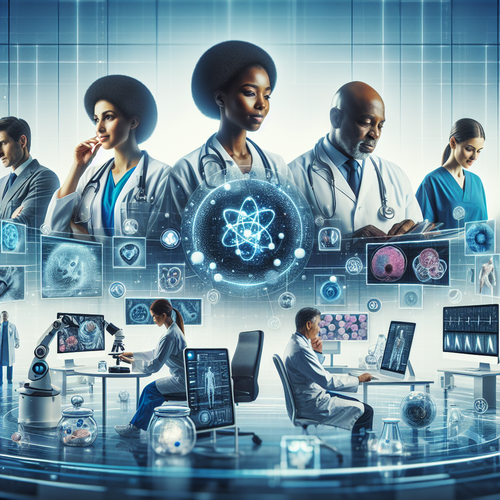
Uncovering the Future of AI-Driven Healthcare Solutions
Uncovering the Future of AI-Driven Healthcare Solutions
Artificial Intelligence (AI) is revolutionizing various sectors, with healthcare emerging as one of the most impactful areas. As technology advances, the integration of AI into healthcare practices promises to reshape everything from diagnostics to patient care. In this article, we delve into the exciting future of AI in healthcare and identify how these innovations can transform the industry.
The Current Landscape of AI in Healthcare
AI is already making significant strides in healthcare. Machine learning algorithms analyze vast datasets, leading to improved diagnostics and personalized treatments. Hospitals and clinics are increasingly adopting AI-based systems that can assist healthcare professionals in providing better care.
AI in Diagnostics
One of the most promising applications of AI in healthcare is in the field of diagnostics. AI algorithms can process and analyze medical images, identify anomalies, and provide accurate assessments faster than traditional methods. For example:
- Radiology: AI systems can detect tumors and other abnormalities in X-rays and MRIs with remarkable accuracy.
- Pathology: AI technologies help analyze tissue samples more efficiently, improving the speed of cancer diagnosis.
Enhancing Patient Care
AI is not only transforming diagnostics but also enhancing overall patient care. AI-driven solutions can assist healthcare providers in managing patient records, predicting patient needs, and developing personalized treatment plans.
Predictive Analytics
With the help of AI, hospitals can analyze patient data to predict health risks. This proactive approach enables healthcare providers to intervene early, reducing hospitalization rates and improving patient outcomes. For instance, AI models are capable of predicting which patients are at risk of developing chronic conditions, allowing for preventive care strategies.
Telemedicine and AI
Telemedicine has gained traction, particularly after the COVID-19 pandemic. Integrating AI into telehealth platforms improves remote consultations. Virtual assistants powered by AI can guide patients through symptom assessments, streamline appointment scheduling, and provide follow-up care recommendations.
For more insights into how AI impacts various sectors, check out our earlier post on AI and Climate Action.
Challenges Ahead
Despite its enormous potential, the integration of AI in healthcare comes with challenges:
- Data Privacy: Handling sensitive patient data while ensuring compliance with regulations is crucial.
- Trust and Adoption: Healthcare professionals must trust AI systems, necessitating transparency and validation of algorithms.
The Role of Human Touch
While AI can significantly enhance healthcare services, the human touch remains irreplaceable. The most effective healthcare systems will likely be those that combine AI’s analytical capabilities with the empathy and understanding that only healthcare professionals provide.
The Road Ahead
As we look towards the future, it is evident that AI will play an increasingly prominent role in healthcare. Starting from enhancing diagnostics to improving patient care, AI technologies will continue to evolve. Stakeholders must collaborate, innovate, and ensure that ethical standards are upheld as these technologies advance.
Conclusion
The future of AI in healthcare presents countless opportunities. By embracing these advancements, healthcare providers can enhance patient outcomes and create more efficient systems. The synthesis of AI and human expertise has the potential to revolutionize how healthcare is delivered.














